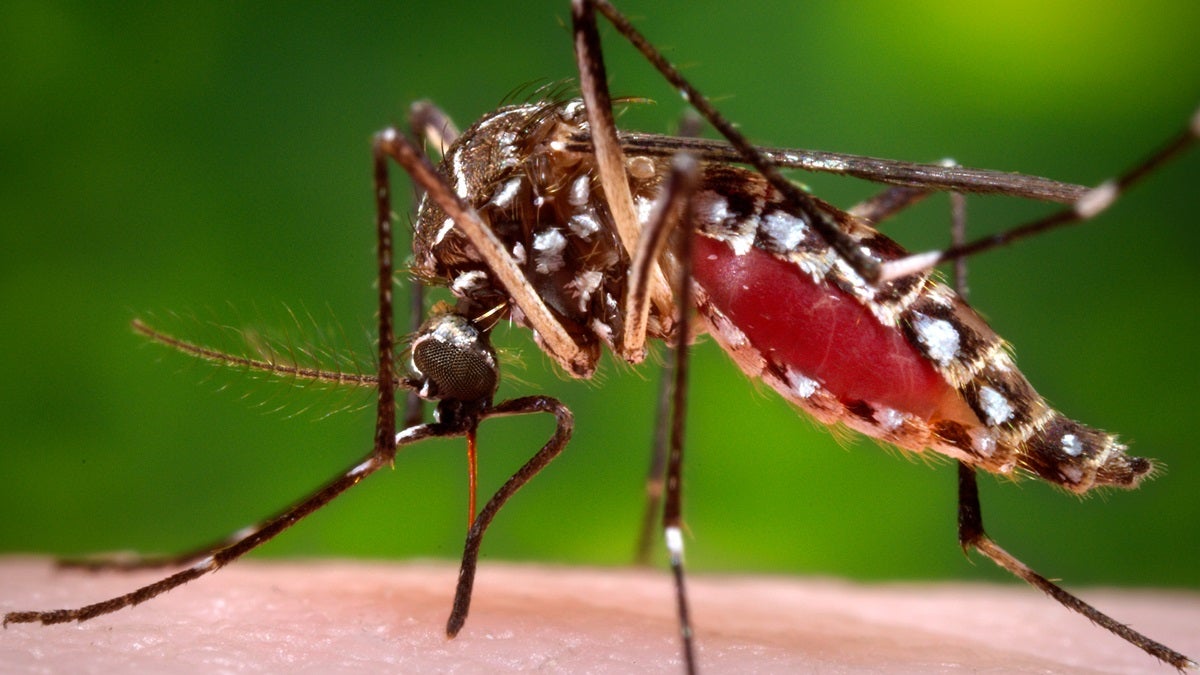Second West Nile virus case in Delaware prompts mosquito warning
Delaware health officials have confirmed the state’s second case of the mosquito-borne West Nile virus. They're urging residents to be cautious.

Mosquito (James Gathany/Centers for Disease Control and Prevention via AP)
Mosquito bites are always annoying. The itching welts are a summertime irritation we’ve come to expect after outdoor activity. But after two cases of West Nile virus infections this year in Delaware, state health officials say it’s time to take avoiding mosquitoes more seriously.
“It is critically important that Delawareans take preventive measures to avoid mosquito bites,” said Dr. Karyl Rattay, director of the Delaware Division of Public Health. “These bites can cause serious health problems, which is why we are urging everyone to protect themselves and their loved ones.”
A 68-year-old man from New Castle County who was hospitalized in July with West Nile virus. He remains hospitalized due to underlying health conditions unrelated to the virus, state officials said. A Sussex County man, 60, was the first confirmed case of the virus this year. In 2017, a Kent County woman contracted the virus. Her case was the first in Delaware in two years.
West Nile cases spiked in Delaware in 2012 with nine reported cases. There were three cases in 2013 and six cases in 2015. Over 13 years, the virus has infected 24 people, not including this year’s cases.
In addition to the human cases, there’s been an uptick in the virus among wild birds and flocks of chickens used to monitor mosquito-borne diseases. “We started seeing positives in both of those earlier than we normally would,” said Paula Eggers, infectious disease epidemiologist for DPH.
Earlier this month, a sentinel chicken was found with Eastern equine encephalitis in Sussex County. Similar to West Nile, EEE can infect humans as well as horses, and while it’s more severe than West Nile, EEE is also much rarer.
Only 20 percent of those infected with West Nile will develop symptoms that include fever, headache, body aches, a skin rash and swollen lymph glands. Just one in 150 people infected will develop a more severe reaction, which could include West Nile encephalitis or meningitis.
Because some people with West Nile may not have any symptoms, Eggers said, it’s likely the actual number of cases in the state is higher than the two confirmed by state health officials.
Until lower temperatures reduce mosquito activity around mid-October, officials will remain on alert.
“Some steps you can take include using Environmental Protection Agency-registered insect repellents, wearing light-colored long-sleeved shirts and pants when outside, and using mosquito netting to protect infants in carriages, strollers and playpens,” Rattay said.
The state’s Mosquito Control Section is spraying for mosquitoes via aircraft this week along the Delaware River east of Smyrna and Dover. Homeowners can assist the state’s efforts by eliminating standing water in buckets, uncovered trash cans, stagnant bird baths, old tires and unused swimming pools.
Those areas may be harboring more water and incubating more mosquito larva because of an overabundance of rain this summer.
WHYY is your source for fact-based, in-depth journalism and information. As a nonprofit organization, we rely on financial support from readers like you. Please give today.





